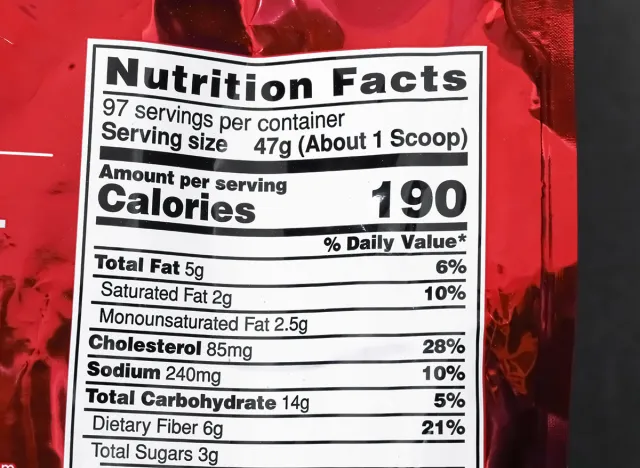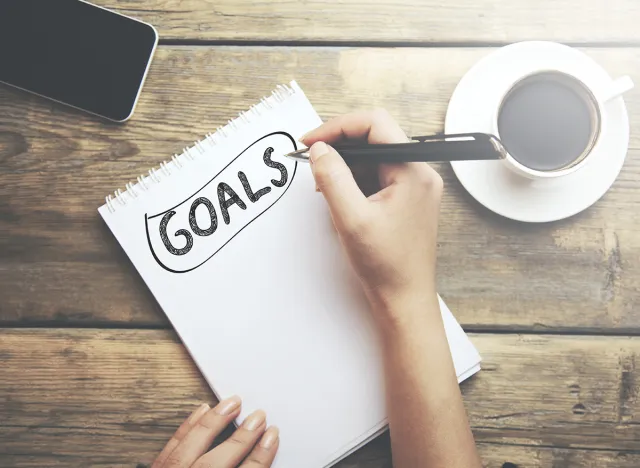12 Mistakes to Avoid When You Want to Lose Weight

Weight loss is not easy—but for the most part, it's straightforward. "Healthy weight isn't about following a diet or program," says the CDC. "Instead, it involves a lifestyle with healthy eating patterns, regular physical activity, and stress management. People with gradual, steady weight loss (about 1 to 2 pounds per week) are more likely to keep the weight off than people who lose weight quickly." Here are major mistakes to avoid if you want to lose weight and, just as importantly, keep it off.
Too Stressed

Chronic stress leads to inflammation, which impedes weight loss efforts. "The link between stress and weight gain is real," says the Cleveland Clinic. "Those elevated cortisol levels circulating in your body lower your metabolism and encourage cravings for fat and sugars."
Sedentary Lifestyle

Sitting too long can lead to weight gain and a slower metabolism, studies show. "It is thought excessive sitting slows the metabolism – which affects our ability to regulate blood sugar and blood pressure, and metabolize fat," says the NHS. "And may cause weaker muscles and bones."
RELATED: 10 Tips to Lose 40 Pounds in 6 Months
Too Much Sugar

Too much sugar is terrible for your health—and your waistline. "I don't think we have enough evidence yet to suggest that sugar is the reason for the obesity epidemic," cardiologist Chiadi E. Ndumele, MD, MHS, tells Johns Hopkins Health. "But there is enough evidence to say that elevated sugar consumption is an important contributor to weight gain."
Lack of Sleep

Not getting enough sleep impacts weight loss in many ways. "Working to find ways to clean up sleep hygiene may help people to extend sleep time to the recommended seven to nine hours per night," Beth Frates, MD, tells Harvard Health. "This could, in turn, lead to consuming fewer calories and even weight loss in people who are in the overweight category by BMI."
Avoiding Weights

Don't avoid weights if you want to lose weight! "Strength training helps you lose weight and keep it off by building muscle tissue," according to Beaumont Health. "The more muscle mass you have, the higher your metabolic rate tends to be. More muscle also helps your body burn more fat than muscle, which is important if you want to lose weight and keep your strength."
RELATED: This Plan Is How to Lose 5 Percent Body Fat In 2 Weeks
Not Enough Protein

Your body needs protein to build muscle. Protein is also important for satiety. "Protein plus fiber keeps us full longer, which means you don't feel the urge to eat as often," chef and dietitian Nancy Waldeck tells Piedmont Healthcare. "This helps keep weight down while fueling our cells with the right nutrients they need."
Too Many Calories

It can be useful to track calories to make sure you're in a deficit. "Losing weight essentially comes down to one thing: By burning more calories than you're eating, a math solution called a calorie deficit," says the Cleveland Clinic. "You can create a calorie deficit by reducing your calorie intake or combining fewer calories with more exercise."
Get Your Heart Rate Up

Cardio—even gentle cardio like walking and hiking—is great for fat loss. "Cardio's role in helping you shed pounds is burning calories. The more you exercise, the more calories you'll burn," according to Beaumont Health. "If you're trying to lose weight, you should aim for doing cardio at least five days per week for a total of at least 250 minutes (4 hours, 10 minutes) each week."
RELATED: The Ultimate Guide to Getting Fit as a Pear Body Type
Drink More Water

Drinking water helps weight loss in many ways. For example, drinking water before a meal can help prevent overeating. "Water is critical in every cellular activity of our body from head to toe," registered dietitian nutritionist Elizabeth Huggins tells Johns Hopkins. "Staying hydrated helps the body run more efficiently and helps us feel better."
Not Food Prepping

Prepping your food ahead of time eliminates decision-making about what you will eat. "With anything in life, if you fail to plan, you plan to fail. That applies to meal planning as well," registered dietitian Silvia Veri tells Beaumont Health. "Planning meals and snacks ahead of time increases the chance for success, it increases the likelihood a healthier food choice will be made."
Set Realistic, Sustainable Goals

Trying to lose an unrealistic amount of weight in too short a time may undermine your efforts. "Depending on your weight, 5% of your current weight may be a realistic goal, at least for an initial goal," according to the Mayo Clinic.
"If you weigh 180 pounds (82 kilograms), that's 9 pounds (4 kilograms). Even this level of weight loss can help lower your risk of chronic health problems, such as heart disease and type 2 diabetes."
RELATED: This Plan Is How to Lose 5 Percent Body Fat In 2 Weeks
Not Having Support

Don't be afraid to ask for help or support from others. It will help you stay accountable and motivated. "Ideally, find people who will listen to your concerns and feelings, spend time exercising with you or creating healthy menus, and share the priority you've placed on developing a healthier lifestyle," says the Mayo Clinic. "Your support group can also offer accountability, which can be a strong motivation for sticking to your weight-loss goals."
💪🔥Body Booster: Make sustainable changes for long-term weight loss success. Maintenance is key!




